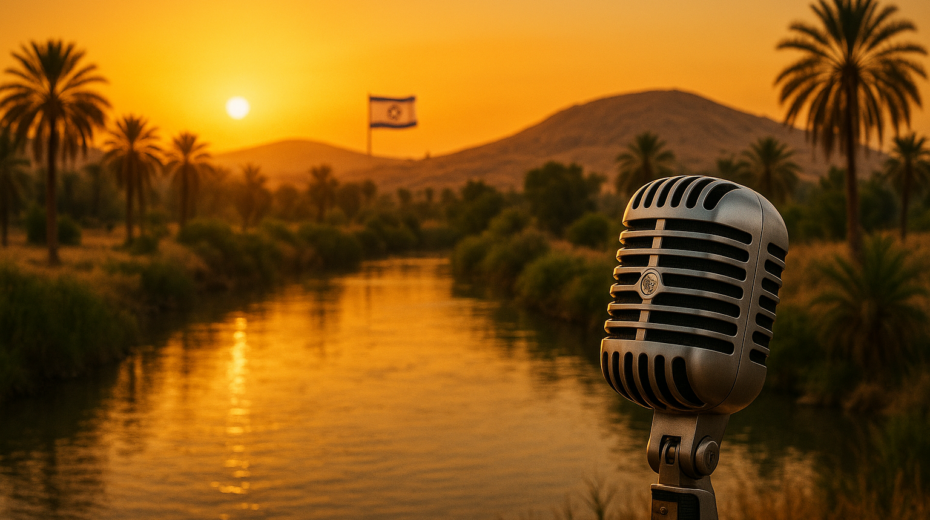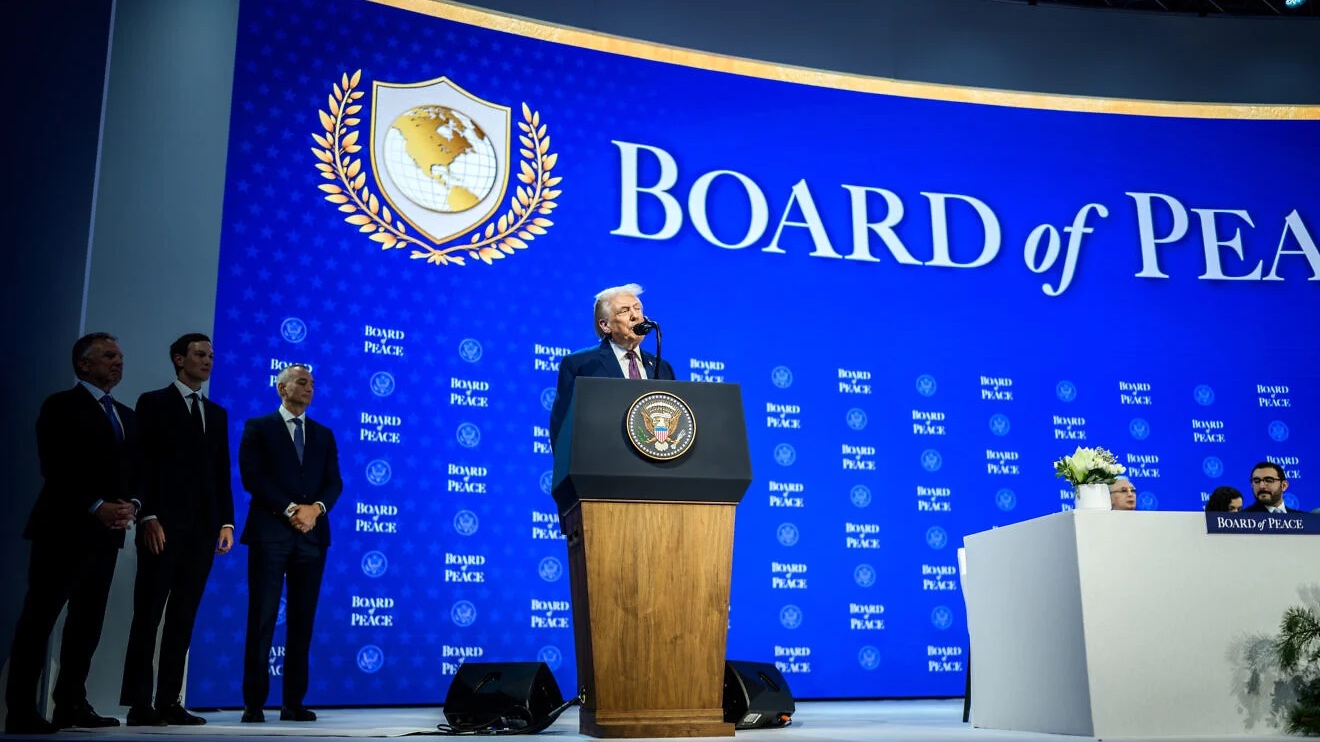
Aviel Schneider
Those who know me know the place music holds in my life. It’s not just background noise but an inner resonance. It’s not only the melodies that move me—equally, it’s the words. When both intertwine, when notes and lyrics amplify each other, something within me begins to vibrate. At home, on the go, in the car—music is my constant companion. My most faithful technological friend: Mr. Spotify. My playlist is a journey through the soundscapes of this world—from classical music to blues, jazz, rock, R&B, and soul, to Hebrew songs and worship music. A life without music? Unthinkable. It soothes, inspires, and sometimes even annoys—but that’s what makes it authentic. There are countless songs I could write about. Songs that give meaning, provoke thought, or simply freeze an emotional moment in time. Today, however, I want to talk about a very special song: “A Change Is Gonna Come.” For Israel, too!
“A Change Is Gonna Come” – Sam Cooke’s eternal song of pain and hope
Some songs sound like a historical document, others like a prophecy. Sam Cooke’s “A Change Is Gonna Come” is both. Born in the midst of the American Civil Rights Movement, the song tells of deep personal pain—and at the same time, of a hope that reaches beyond the moment. It’s a song like a psalm. A protest song without slogans. A hymn of confidence, written by a man who was shot dead just months after recording it.
Sam Cooke, who thrilled millions with hits like “You Send Me” and “Wonderful World,” was a star in 1963—but a Black star in a deeply divided America. A racially motivated rejection at a motel became a turning point for him. Around the same time, he heard Bob Dylan’s “Blowin’ in the Wind” and asked himself, “Why haven’t I written a song like that?” Thus, “A Change Is Gonna Come” was born—a song Cooke rarely performed live, as it moved him so deeply.
“It’s been a long, a long time coming / But I know a change gonna come – oh, yes it will.”
These lines are more than a chorus—they are a promise. A pledge to persevere for an America still far from equality. Cooke’s song is not a classic protest manifesto, no raised-fist accusation. That’s precisely what makes it universal—and relevant to us. I am certain: Better times are ahead.
Even today, this song has lost none of its power. Yet, as much as it moves me, I consciously avoid comparing the suffering of Black Americans with the situation of Palestinians in our region. As tempting as this comparison may seem to some, it is misleading. The African American population fought for generations for equality: under immense suffering, but without resorting to terror or attempting to destroy the “whites.”
In our region, however, we face a different conflict: Here, the Jewish state is not criticized for discrimination but is often questioned in its very existence—frequently accompanied by violence, hatred, and terror. That’s why I believe the comparison is flawed. The more fitting framework is not the American Civil Rights Movement but the reality of a small people—Israel—in the tension of a region where being different, especially Jewish-Western difference, is often met with rejection.
The real issue is not the occupation but the deep-rooted inability of large parts of the Islamic world to accept the Jewish state as a legitimate part of the Middle East.
Those who wish can see Sam Cooke’s song in line with biblical lament psalms, prophetic visions, and the call for redemption. The very first line takes us to a river—birthplace, lifeline, a symbol of flowing onward despite all obstacles.
The river recalls the streams of Babylon (Psalm 137), a memory in exile.
“I was born by the river in a little tent / And just like the river, I’ve been running ever since.”
Birth by the river, a life in motion. The river stands for origin but also for restlessness, flight, movement. Birth in a “tent” hints at poverty and insecurity—almost like Moses, set adrift in the reeds as a baby.
“I’ve been running ever since” evokes Jacob fleeing from his brother or the people of Israel wandering through the desert or repeatedly persecuted.
The third verse ventures into the spiritual. The singer fears death because he doesn’t know what lies “up there”—a rare, honest line about existential uncertainty.
“It’s been too hard living, but I’m afraid to die / ’Cause I don’t know what’s up there, beyond the sky.”
Then, the disappointment from a brother who doesn’t help but pushes back.
“Then I go to my brother / And I say, ‘Brother, help me please’ / But he winds up knockin’ me / Back down on my knees.”
A scene familiar to many African Americans of that era: exclusion—even in their own country.
But in the end, hope: “But now I think I’m able to carry on.” This sentence carries more weight than any slogan. The turning point. Despite everything: hope. From weakness, strength emerges.
The biblical depth of a soul song
What makes “A Change Is Gonna Come” so powerful is its depth and its proximity to biblical language. The chorus, almost like a mantra, recalls the promises of the prophet Isaiah:
“Behold, I am doing a new thing; now it springs forth” (Isaiah 43:19).
“It’s been a long, a long time coming / But I know a change gonna come, oh yes it will”—a confession of faith. The repetition of “long time” underscores the duration of suffering; the conviction “I know” expresses certainty—faith.
The song could be read as a modern psalm—born from the soul’s space of sorrow, faith, and expectation. Even if Sam Cooke doesn’t name God, His spirit is felt in every note, in every breath. A modern lament that doesn’t dwell in pain but opens a horizon—for the individual and for society.
It has been sung at protests, played at memorials, and covered by artists like Aretha Franklin, Otis Redding, Beyoncé, Neville Brothers, Solomon Burke, and Seal.
I recommend three covers: Sam Cooke, Solomon Burke, and Neville Brothers. In Solomon Burke’s cover (1986), Israel is even mentioned—a change will come for Israel, too.
The question of justice, dignity, equality—it remains unresolved. But as long as such songs exist, so does hope.
“A Change Is Gonna Come”—yes, perhaps not today. But one day. For certain.
I know, a change is gonna come!














